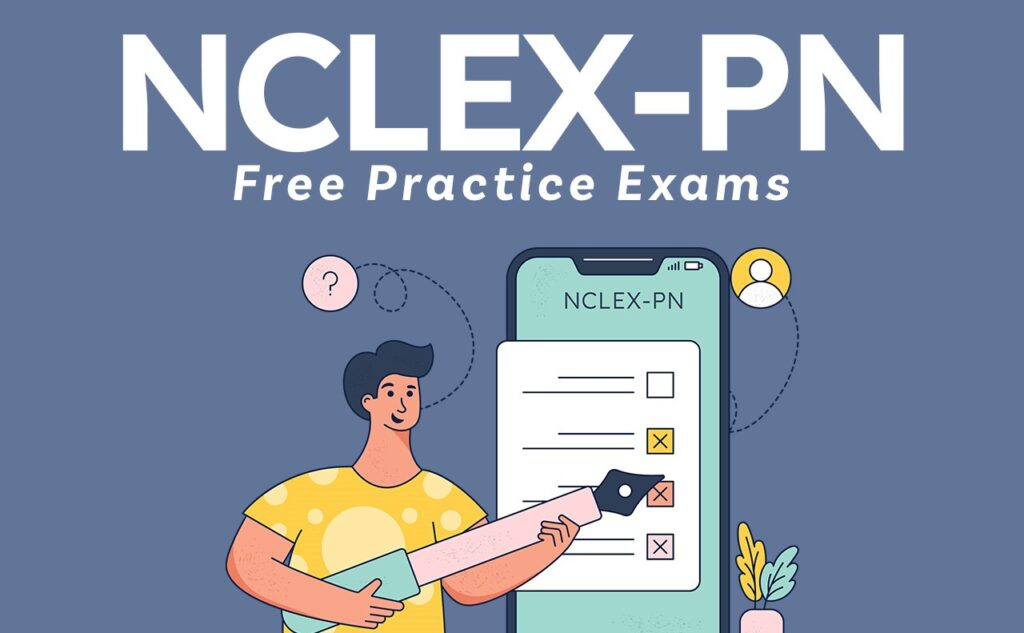Preparing For The NCLEX-PN Exam: Tips And Resources For Success
Preparing for the NCLEX-PN Exam: Tips and Resources for Success
The National Council Licensure Examination for Practical Nurses (NCLEX-PN) is a pivotal step towards becoming a licensed practical nurse (LPN) in the United States.
Understanding the exam’s specifics and implementing effective preparation strategies are essential for success.
This comprehensive guide delves into eligibility criteria, age limits, exam details, costs, and invaluable tips to ensure you’re well-prepared for this crucial licensure exam.
This licensure exam is designed to evaluate your readiness to practice safely and effectively as an entry-level practical nurse.
Understanding the NCLEX-PN Exam:

Before delving into preparation strategies, it’s important to grasp the structure and content of the NCLEX-PN exam.This computer-adaptive test assesses your ability to apply nursing knowledge and critical thinking skills in various scenarios. It covers a wide range of topics, including:
Safe and Effective Care Environment
Health Promotion and Maintenance
Psychosocial Integrity
Physiological Integrity
This section focuses on safety and infection control, as well as management of care.
It encompasses growth and development, prevention, and early detection of health problems.
Examines the nurse’s ability to provide emotional and mental health support to patients.
This section covers basic care and comfort, pharmacological therapies, reduction of risk potential, and physiological adaptation.
The exam utilizes computer-adaptive testing, which tailors the difficulty of the questions to your performance.It adapts in real-time to your level of knowledge, providing a customized testing experience.
Eligibility Criteria:
To be eligible for the NCLEX-PN exam, you must meet certain criteria:
Education:
Criminal Background Check:
Registration with the Nursing Board:
You must have completed a state-approved practical nursing program.
Most states require a clean criminal background check.
You need to register with your state’s nursing board and pay the required fees.
Graduate from an Approved Program:
Submit an Application:
Ensure your practical nursing program is accredited by the appropriate accrediting body.
Complete and submit an application to your state’s nursing board. This includes providing transcripts and other necessary documentation.
Age Limits:
There are no specific age limits for taking the NCLEX-PN exam.As long as you meet the eligibility criteria mentioned above, you can apply to take the exam regardless of your age.
Exam Fees:
The cost of the NCLEX-PN exam varies by jurisdiction.On average, the fee ranges from $200 to $300.
However, it’s important to check with your state’s nursing board or the National Council of State Boards of Nursing (NCSBN) for the most up-to-date fee information.
Total Marks and Passing Score:
The NCLEX-PN exam is not scored in the traditional sense. Instead, it’s pass/fail based on your ability to answer questions correctly within a set amount of time. The minimum number of questions you can receive is 85, and the maximum is 205.The passing standard is determined by the difficulty level at which you consistently demonstrate competence.
Tips for Effective NCLEX-PN Preparation:

Tip 1: Create a Structured Study Plan
Establishing a structured study plan is the foundation of successful NCLEX-PN preparation.Break down your study time into manageable chunks, allocating specific periods for each content area.This approach ensures comprehensive coverage and prevents last-minute cramming.
Tip 2: Utilize High-Quality Study Materials
Invest in reputable study materials, such as review books, online courses, and practice exams.Resources like Kaplan, Saunders, and Hurst offer comprehensive review guides and simulated NCLEX-PN exams that closely mimic the actual testing experience.
Tip 3: Practice Critical Thinking and Decision-Making
The NCLEX-PN exam is not just about recalling facts; it emphasizes critical thinking and clinical reasoning.Engage in practice questions that require you to analyze situations, prioritize interventions, and make informed decisions.
Tip 4: Join a Study Group or Online Community
Collaborative learning can be incredibly beneficial in NCLEX-PN preparation.Joining a study group or participating in online forums allows you to discuss concepts, share insights, and gain different perspectives.This collaborative approach can enhance your understanding and reinforce your knowledge.
Tip 5: Take Regular Practice Exams
Consistent practice with mock exams is essential for building confidence and assessing your progress.Allocate time for full-length practice tests to simulate the actual exam environment.Analyze your performance and focus on weak areas for further review.
Tip 6: Implement Active Learning Techniques
Engage in active learning strategies like concept mapping, flashcards, and mnemonics.These techniques help solidify information, enhance memory retention, and promote deeper understanding of complex concepts.
Tip 7: Prioritize Self-Care and Well-Being
Balancing self-care with study time is crucial for maintaining focus and mental clarity.Ensure you get enough rest, engage in physical activity, and maintain a balanced diet.Don’t neglect your emotional well-being; seek support from friends, family, or counselors when needed.
Conclusion:
In conclusion, success in the NCLEX-PN exam requires a well-rounded approach, incorporating structured study plans, high-quality resources, critical thinking practice, and self-care.By following these tips and utilizing the recommended resources, you’ll be well-prepared to excel in this crucial licensure exam.
Remember, confidence and a calm mindset on exam day can make all the difference in your success. Good luck!
If you are interested in pursuing a career in healthcare, practical nursing may be the right choice for you.Visit our website for detailed information on the practical nurse program.Get connected to us on Facebook at PITC Institute.
